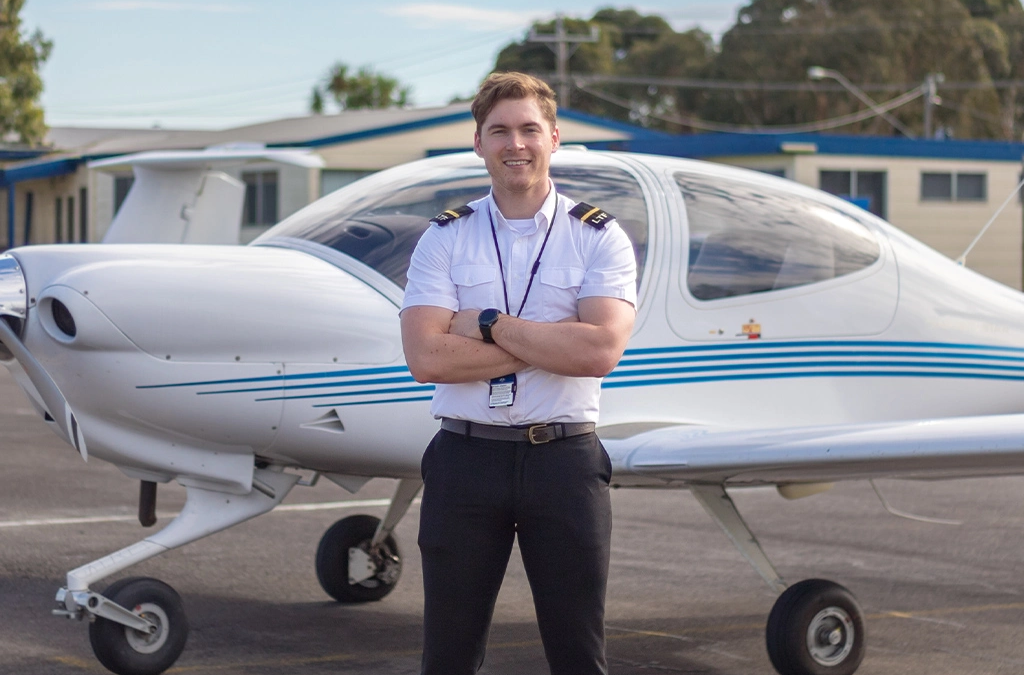Airline cadet pilot programs are very popular, and therefore successfully obtaining a spot in one can be quite difficult. While a cadet pilot interview itself may share some similarities to other types of job interview, the overall application and selection process is far more involved.
Having knowledge about the application and interview process, and what airlines are looking for from applicants, is crucial to your success. Continue reading to learn how best to prepare yourself for this very important step in your aviation journey.
Research the airline
You wouldn’t walk into a standard job interview without first researching your potential employer. A cadet pilot interview requires an even more thorough approach.
Whether you’re interviewing for an international carrier or a domestic airline, conduct as much research as possible on the company. This includes their history, the fleet they offer, the routes they fly, key personnel, their key values and vision, and even recent company news.
Airlines love to feel like you specifically want to fly for them in particular. Being appropriately prepared to speak about these topics will demonstrate not only your professionalism, but also indicate that you understand the way they operate.
Consider your presentation
Pilots are known for their professional presentation, typically boasting a neatly pressed uniform and smart overall appearance. An extremely simple way to get an edge on your competitors is by looking like you;re already an airline pilot from the moment you step into the interview room!
The same goes even if you are participating in a remote interview. Ensure your appearance is neat and the surrounding area is free from distractions. Proper preparation will also allow you to be confident in the way you present yourself when answering questions.
Know your own skills and experience
A certain portion of the interview will be dedicated to questions about your flying experience or knowledge on flying. For most cadet programs, the airline will not necessarily expect you to have logged hundreds of hours of flight experience. After all, the definition of a cadet is a beginner or a young trainee.
Having said this, it certainly helps to have spent a little time in the cockpit. Having some basic knowledge on flying and how to operate an aircraft will make you clearly stand out from applicants with no flying experience. In addition, it shows your interviewers that you have actually tried flying before making the decision that you want to pursue it as a career.
Be able to apply general skills to specific situations
While it helps to have specific aviation knowledge and experience, successful pilots also require a broad range of soft skills. Before investing time and resources into your training, an airline will want to be sure you have what it takes to be a pilot — and not everyone does. Some skills can be taught and some are more innate.
To start with, a pilot needs to have excellent communication skills. When up in the cockpit, you’re part of a team that includes your co-pilot, flight attendants, and ground crew. You need to be able to communicate technical information in a clear and concise manner and also display listening skills.
Problem-solving is also a huge part of being a pilot — particularly solving complex problems in high-stakes situations. A pilot requires the ability to think on their feet and implement timely solutions in circumstances where passengers’ lives may be at risk.
Even when things are going right in the skies, a pilot still needs to be able to handle multiple tasks at once. The ability to multitask is a must, as is skill in prioritisation and organisation.
Finally, a pilot needs to be personable. Teamwork skills are a must, given you’ll be relying on a number of other people to keep your plane in the air. You should also be able to present a confident, friendly, and approachable appearance to passengers.
The airline will want to see evidence of these soft skills and personal attributes. Prepare examples of situations in your personal and professional life where you have demonstrated excellent communication skills, problem-solving skills, the ability to multitask and work as part of a broader team.
Consider professional training
Undertaking a cadet pilot interview marks a momentous step in your aviation journey. It’s worth investing as much time and resources as possible in your preparation. With that in mind, consider undertaking professional cadet pilot interview training. Some flight schools offer courses that are designed to prepare you for both the application process and interview itself.
Exactly what a cadet pilot interview preparation course contains will depend on the specific flight school. Some courses include practical flight training and theory as well as application and interview training, whilst others offer those components separately.
Look for programs that have a high success rate, and schools that offer courses that can be tailored to the individual airlines you want to apply for. The process and applicant preferences do vary between airlines, so this can be important.
At the conclusion of an airline pilot interview preparation program, you’ll feel far more confident in your ability to answer specific aviation questions and will present as a far more attractive potential candidate.
Investing well in professional pilot interview preparation gives you invaluable extra knowledge, and could be the difference between you and other applicants. Do your research, give yourself plenty of time, and you will be giving yourself the best chance possible of achieving your dream to take to the skies as an airline pilot!


